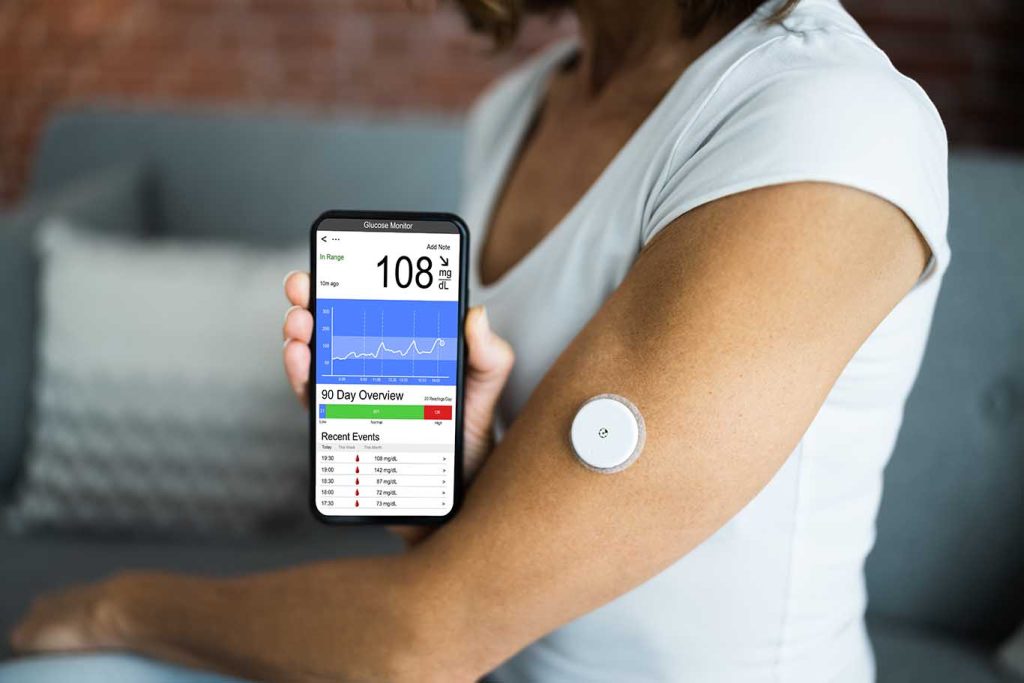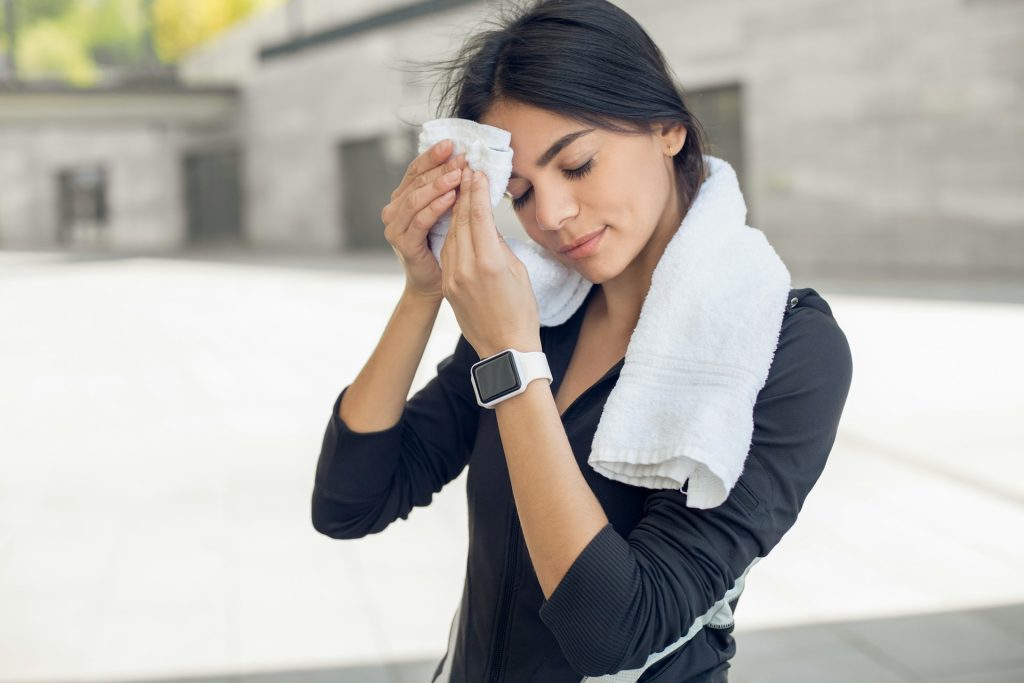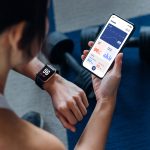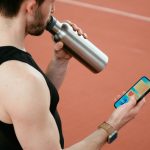Table of Contents
Your body is constantly sending signals—but are you paying attention? Wearable devices give biohackers real-time insights into sleep, stress, and recovery, helping them optimize performance and longevity. Here are the wearables they trust to stay ahead.
Why Biohackers Track Their Health With Wearables
Biohackers believe that if you can measure it, you can improve it. Wearables provide objective data on sleep quality, recovery, stress levels, and metabolic health, allowing users to adjust their habits for better results.
By tracking HRV, glucose levels, sleep cycles, and body temperature, biohackers can spot patterns and warning signs before they affect performance. When I started using wearables, I realized my stress levels were higher than I thought, and my recovery needed more attention. That data completely changed how I train, and rest.
The Top HRV Wearables Biohackers Swear By

Heart Rate Variability (HRV) is a powerful metric for measuring recovery and stress adaptation. A higher HRV generally indicates better resilience, faster recovery, and a well-balanced nervous system.
- Whoop Strap: This device continuously tracks HRV and provides detailed recovery insights, helping users know when to push hard or take it easy.
- Oura Ring: Focuses on overall wellness, providing HRV, sleep quality, and recovery scores to help users manage stress and optimize rest.
These wearables help biohackers fine-tune training, recovery, and lifestyle choices to maximize long-term performance.
The Sleep Trackers Biohackers Use for Deep Rest
Good sleep isn’t just about how long you rest—it’s about how well your body recovers overnight. Wearable sleep trackers analyze REM cycles, deep sleep duration, and nighttime disturbances to help biohackers improve their sleep.
- Oura Ring: Offers detailed sleep analysis, tracking heart rate, body temperature, and HRV to measure sleep efficiency.
- Fitbit Sense: Monitors oxygen levels, movement, and sleep quality to detect potential sleep disruptions.
- Garmin Venu: Tracks sleep stages and recovery while integrating fitness and stress data for a complete health picture.
I used to think six hours of sleep was enough, but my Oura Ring showed my deep sleep was lacking. After tweaking my nighttime routine—reducing blue light, adding magnesium, and keeping my room cooler—my sleep quality improved dramatically.
Glucose Monitors Biohackers Use for Energy & Metabolic Health

Blood sugar stability is key to energy levels, fat metabolism, and cognitive performance. Sudden spikes and crashes in glucose can lead to fatigue, brain fog, and metabolic imbalances. Biohackers use Continuous Glucose Monitors (CGMs) to gain real-time insights into how food, exercise, and stress impact blood sugar.
- Levels: Offers real-time glucose tracking and personalized insights to help users optimize diet and energy levels.
- Freestyle Libre: Provides continuous glucose monitoring for those looking to track their metabolic health.
By tracking glucose fluctuations, biohackers can identify patterns, optimize meal composition, and adjust fasting or exercise routines to maintain balanced energy levels. Stable glucose regulation is linked to improved focus, reduced inflammation, and better long-term metabolic function.
How Biohackers Use Temperature Tracking for Faster Recovery
Body temperature fluctuations can indicate stress, recovery status, or even early signs of illness. Biohackers use wearables that track subtle temperature changes to adjust workouts, sleep, and recovery strategies.
- Oura Ring: Detects temperature variations, which can signal overtraining, illness, or poor recovery.
- Ava Bracelet: Originally designed for fertility tracking, it is also helpful in monitoring hormonal shifts and metabolic function.
- Whoop Strap: Tracks skin temperature trends alongside HRV and recovery metrics.
A small rise in temperature can signal overtraining or an oncoming illness. By using temperature tracking, I’ve adjusted my workout intensity and sleep routine, helping me avoid burnout and stay consistent.
The Best Wearables for Stress and Cognitive Performance

Most people track fitness metrics but overlook stress and mental performance. Wearables can monitor brainwave activity, HRV, and breathing patterns to help users manage stress more effectively.
- Muse (EEG headband): Measures brainwave activity to improve focus and meditation.
- HeartMath (HRV monitor): Helps users track and manage stress levels through biofeedback.
Tracking stress was a huge eye-opener for me. I realized certain workouts and habits spiked my cortisol more than I expected. By adjusting my routine—adding breathwork, tweaking training schedules, and improving sleep—I saw massive improvements in focus and resilience.
Which Wearables Biohackers Use for Different Health Goals
Wearable technology isn’t one-size-fits-all—each device serves a unique purpose depending on health priorities. Whether the goal is fitness, longevity, sleep optimization, or metabolic health, biohackers choose wearables that provide the most relevant data for fine-tuning their routines.
- For performance and recovery: HRV trackers like Whoop Strap and Oura Ring provide real-time insights into nervous system balance, workout readiness, and sleep recovery.
- For nutrition and glucose control: Levels CGM and Freestyle Libre track how food, stress, and exercise impact blood sugar, helping maintain stable energy and metabolic efficiency.
- For stress management and focus, EEG-based wearables like Muse and HeartMath measure brainwave activity and heart rate variability, offering feedback on relaxation, cognitive performance, and stress regulation.
By selecting the right wearable for their specific goals, biohackers can make data-driven decisions to optimize health, improve performance, and maintain long-term well-being.
Many biohackers also combine multiple devices, such as HRV trackers with glucose monitors, to better understand how different physiological systems interact.
The Future of Wearable Biohacking
Wearable tech is getting more advanced, with new devices offering real-time blood oxygen monitoring, hydration tracking, and early disease detection. Biohackers already use AI-powered health insights to predict recovery needs, adjust training, and optimize mental performance. As technology evolves, wearable tracking will become essential to daily health optimization.

Hi! I’m Dave, a longtime biohacker focused on natural ways to improve health and performance. My work revolves around analyzing the science behind cognitive enhancers, nutrition, and longevity strategies. I’m particularly interested in natural nicotine products and their effects on focus and energy. Everything I share is based on research and real-world application, ensuring practical, reliable insights. Please note, none of the information shared here is medical advice.




